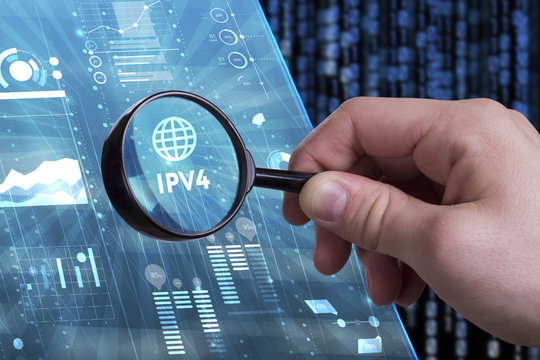
Introduction:
Have you ever wondered where an IP address is located? Perhaps you’re curious about the geographical origins of a website visitor or want to understand more about online security measures. In this blog, we’ll delve into the process of discovering the location of an IP address in a simple and easy-to-understand manner. Understanding how to determine the location of an IP address can be beneficial for various reasons, including improving website security, optimizing marketing strategies, and enhancing user experience. By unraveling the mystery behind IP address locations, you’ll gain valuable insights into the digital world and how it impacts your online activities. So, let’s embark on this journey to unravel the geographic coordinates of IP addresses and unlock a wealth of knowledge along the way.
How can I determine the location of an IP address?
To determine the location of an IP address, you can use online IP geolocation tools or services. These tools analyze various factors, including the IP address itself, network infrastructure data, and geographical databases, to provide an approximate location. Keep in mind that IP geolocation may not always be 100% accurate due to factors like VPNs or proxy servers.
Are there any privacy concerns associated with IP geolocation?
Yes, there are privacy concerns with IP geolocation, as it can reveal the approximate physical location of an individual or organization. This information may be used for targeted advertising, tracking user behavior, or even surveillance purposes, raising privacy implications. Users should be cautious about sharing their IP address or enabling location services to protect their privacy online.
IP Geolocation Services: One of the most common methods for determining the location of an IP address is through IP geolocation services. These services use a combination of techniques, including analyzing network infrastructure data, querying geographical databases, and utilizing machine learning algorithms to estimate the physical location associated with an IP address. Popular IP geolocation services include MaxMind, GeoIP2, and IP2Location.
WHOIS Lookup: Another method for determining the location of an IP address is through a WHOIS lookup. WHOIS databases contain information about the registered owner of an IP address, including their contact details and geographical location. By querying a WHOIS database, you can retrieve information about the organization or individual that owns the IP address, which may include their physical address and country of origin.
Traceroute: Traceroute is a network diagnostic tool that traces the route packets take from your computer to a destination IP address. While traceroute doesn’t directly provide the geographical location of an IP address, it can help identify the network infrastructure through which the packets are routed, providing insights into the geographic regions involved in the data transmission.
Reverse DNS Lookup: A reverse DNS lookup can also provide clues about the location of an IP address. By querying the reverse DNS records associated with an IP address, you can retrieve the domain names or hostnames assigned to that IP address. While domain names themselves may not directly reveal the location, they can provide hints about the organization or service associated with the IP address, which may have a physical presence in a specific geographic location.
Challenges and Limitations
While determining the location of an IP address can be useful, it’s essential to acknowledge the challenges and limitations associated with this process. Some of the key challenges include:
VPN and Proxy Services: VPNs and proxy services can mask the true IP address of a user, making it appear as though they are accessing the internet from a different location. This can complicate IP geolocation efforts, as the IP address may not accurately reflect the user’s actual physical location.
Dynamic IP Addresses: Many internet service providers (ISPs) assign dynamic IP addresses to their users, meaning that the IP address associated with a device may change over time. This can make it challenging to accurately track the location of a device based on its IP address.
Accuracy: While IP geolocation services strive to provide accurate location data, there can be inaccuracies and discrepancies, particularly in cases where IP addresses are shared or where the infrastructure is complex.
FAQS
1: Can I track someone’s exact location using their IP address?
While IP addresses can provide general geographic information, they usually cannot pinpoint an individual’s exact location. Factors such as dynamic IP assignments, network proxies, and VPNs can further complicate location tracking. Additionally, obtaining precise location data typically requires specialized tools and legal authorization. It’s essential to respect privacy and use IP address information responsibly and within legal boundaries.
2: How accurate are IP geolocation services?
The accuracy of IP geolocation services varies depending on factors like database quality, network infrastructure, and the use of anonymizing tools. Generally, these services provide a reasonable approximation of a device’s location but may not always be precise. Factors such as mobile devices using cellular networks or VPN connections can further affect accuracy. Users should understand the limitations of IP geolocation and consider multiple sources when determining location information.
Final Thoughts:
Understanding how to determine the location of an IP address is valuable for various reasons, including cybersecurity, marketing analytics, and law enforcement. While IP geolocation provides useful insights, it’s crucial to acknowledge its limitations and potential inaccuracies. Users must employ ethical and legal practices when utilizing IP address information to respect privacy rights and avoid misinterpretation. Moreover, advancements in technology continually shape the accuracy and reliability of IP geolocation services, offering both opportunities and challenges. As we navigate this digital landscape, it’s essential to remain informed, adaptable, and responsible in our approach to IP address location tracking. Ultimately, while IP address location tracking can be a valuable tool, it should be used judiciously, with a clear understanding of its capabilities and implications. By maintaining transparency, respecting privacy, and exercising discretion, we can leverage IP geolocation effectively while minimizing potential risks and ethical concerns.
